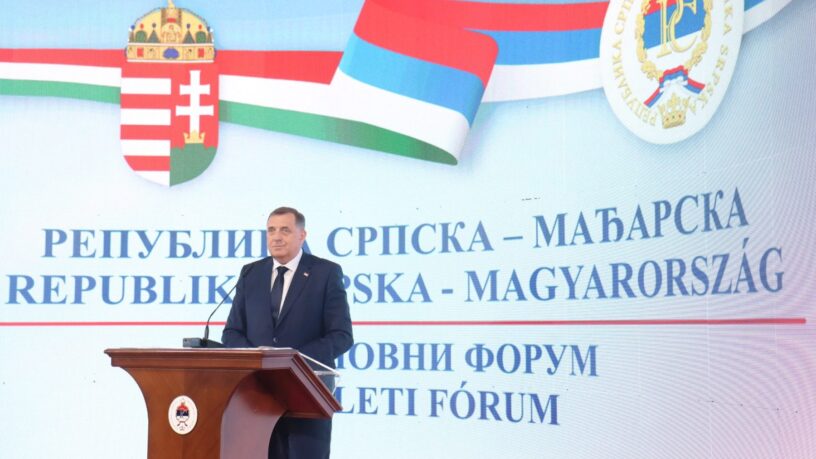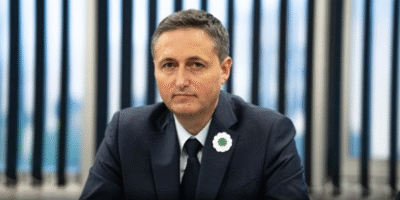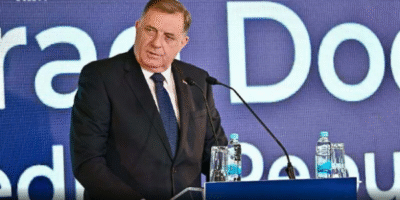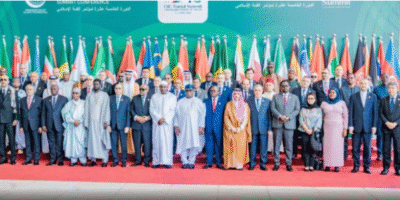Energy deals worth 140 million euros – and a top award for Orban – affirm the close relationship between the pro-Russian Bosnian Serb and Hungarian leaders.
During the two-day visit to Bosnia and Herzegovina, a Hungarian delegation led by Prime Minister Viktor Orban agreed to cooperate on energy projects with Bosnia’s Serb entity, Republika Srpska worth 140 million euros.
The deal made on Friday before the opening ceremony of the joint Economy Forum includes three projects – a solar power plant in the town of Trebinje, a wastewater treatment plant in Gradiska and construction of a wind farm – a project initially financed by the German government, which pulled out over the secessionist politics of Republika Srpska.
“The implementation of the projects will be carried out in cooperation with Hungarian companies Veolia, MBM, and Alteo, whose representatives also attended the meeting,” it was stated after the meeting held before the start of the Economy Forum, which 23 Hungarian companies are attending.
No further details were provided on the terms of cooperation.
Opening the forum, the President of Republika Srpska, Milorad Dodik, said Republika Srpska “offers a range of development possibilities.”
“We can offer you cheap electricity. We want to stimulate you. We also have some advantages,” Dodik said. “There is no income tax, and you should know that. With a range of incentives, we are available to you from local communities to republic [level] institutions. For every business, a good environment is needed, and in addition, good friends,” he added.
Earlier on Friday, Orban received the entity’s top medal, the Order of Republika Srpska, awarded to him on the Day of Republika Srpska on January 9 this year. The same award was given to Russian President Vladimir Putin in 2023.
Dodik and Orban have a longstanding partnership. During his private visit to Dodik’s estate near Banja Luka in 2021, Orban pledged 100 million euros in financial aid to the entity as part of Hungary’s Responsible Neighbourhood policy, aimed at enhancing stability in the region.
In line with this commitment, Hungarian Foreign and Trade Minister Peter Szijjarto met the Bosnian Serb leader to discuss the first disbursement of 35 million euros in June 2022.
Among EU countries, Dodik can rely on Hungary most for support. Hungarian policy toward the Western Balkans aligns with Putin’s agenda, and Orban has repeatedly stated he will veto any EU attempts to impose sanctions on the pro-Russian Bosnian Serb chief.



